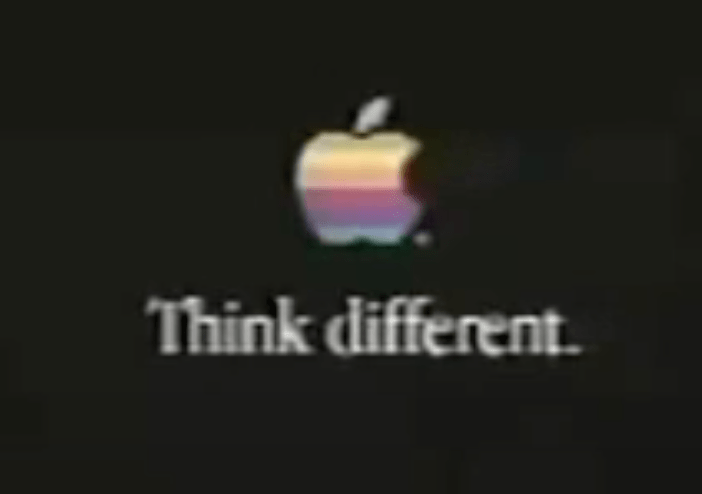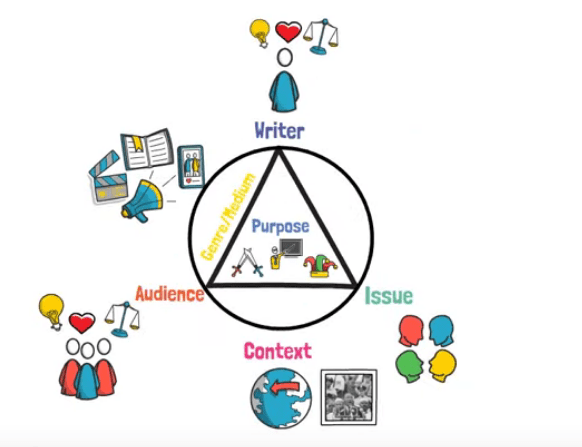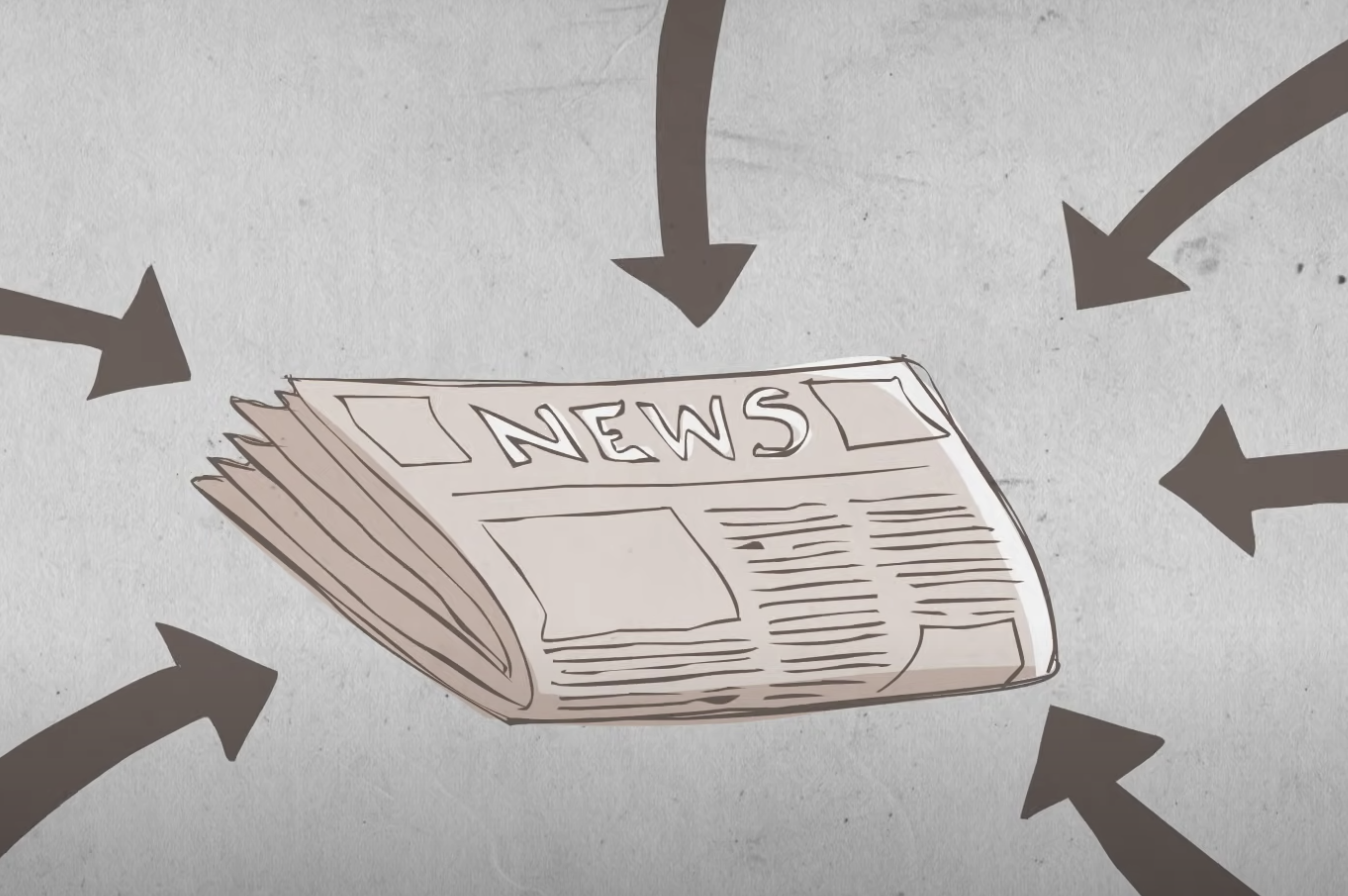Rhetorical Situations: Applying Analysis and Evaluating Information




Rhetoric Terms to use... so far (Week 5)
Rhetorical Canons:
- Invention
- Arrangement
- Style
- Memory
- Delivery
Rhetorical Appeals:
- Pathos
- Ethos
- Logos
- Kairos
Rhetoric impacts: Message, Audience, Speaker
Analysis: Break into parts/how it works
Evaluate: Effective/ineffective
Propaganda:
- Name-Calling, Glittering Generalites,
- Plain Folks Appeal
- Argument to the people/man
- Transfer & Bandwagon
- Faulty Cause & Effect
- False Analogy
- Begging the question
- Two Extremes
- Card-Stacking & Testimonials

Referring back to Week 5's content on Rhetoric.
Kickstarter (3-5 minutes):
- From last week, Duffy's article's "Choose your own Adventure" has 10 statements on "Rhetoric is..." Which ones do you feel are good combinations to explore? What is an example you would give to show this at work?

- Rhetoric is Art
- Rhetoric is a Science
- Rhetoric is Effective Communication
- Rhetoric is Persuasion
- Rhetoric is Public Action
- Rhetoric is Adaptation
- Rhetoric is epistemic (knowledge-making)
- Rhetoric Changes the world
- Rhetoric is old (historical)
- Rhetoric persuades for a reason
What is your Rhetorical Situation? (How are you writing with texts?)
Sample Argumentative Thesis Statements...
- PawHaven does a better job using pathos and ethos than ClawKennel LLC and this is seen because of site content, celebrity influence, and audience awareness.
- SolarSport has a better marketing campaign than GenZ Wear because of its use of ethos, logos, and pathos in its content.
- Content Creator XPlay shows better use of the rhetorical canons of style and arrangement in his content than PowerUP719, and this impacts his fan base in many ways.
- Fitness Influencer, Mr. Rep, shows good use of rhetoric through active content across Instagram and his Blog, ProteinUP.
What are persuasive tactics used on the public?
How can we see rhetoric used to persuade or manipulate the public based on these different themes? Are these legitimate issues in how rhetoric works (in text, online sites, music, video, company messages)?
What is Name, Image, Likeness really about in sports?
Showdown Analysis Content Themes
Think about how what you know about rhetorical situations, appeals, and Duffy's ideas in a topic for your Showdown Analysis. Using the past slides, consider what category or where your TWO artifacts will fall under or come from:
- My Major/Field of Interest
- Recreational/Hobby Expert (Opinions)
- Digital Platform or Site Analysis
- Content Creator or Influencer
- Product or Service Efficiency
- Rhetoric & Propaganda in Storytelling
- Interactive rhetoric in gaming or technology
- Social Media Message Campaign
- Speeches or Historical Samples
Showdown Analysis (Getting Started)
- What will you analyze (discuss details of rhetoric, propaganda, words, images,)? and evaluate (effective vs. ineffective, on a scale of 1-10).
- TWO commercials/ad campaigns (may expand to their website/social media)
- TWO stories (either written or in media; film, episodes, music videos)
- TWO YouTube Profiles about X topic.
- TWO Sports Websites or Player Blogs/Social
- TWO Content creators on X Platform.
- TWO Social Media Profiles
- TWO Ideas expressed on Different mediums
- TWO Video Game story/character arcs, ad/strategy campaigns
- TWO Film/Video Game studio sites.
Showdown Analysis (Getting Started)
- Once you have your TWO artifacts in mind, you will analyze them based on what we are learning about rhetoric. How do they fit into the conversation of:
- Cannons of Rhetoric (Invention, Style, Arrangement, Memory, Delivery)
- Rhetorical Appeals (ethos, pathos, logos, kairos)
- Propaganda tactics (From Cross reading)
- Visual Strategies for rhetoric (Week 5 readings)
- Duffy's Rhetoric is... concepts (Week 5)
- Digital Rhetoric UX Principles (Week 6)
It would be helpful to create a WORD DOC, where you list or "information dump" all of your major talking points about the TWO artifacts. and then connect to our readings and concepts of rhetoric.
Rhetoric Themes
- Share with partners near you what themes of rhetoric you selected and why did those stick out to you the most. Why are your examples important to you?
Top Picks for Showdown Analysis
- What are two artifacts (texts, media, online content) that will be your focus in this next essay?
- What will you compare/contrast?
- Share with partners why these will be good options for analysis/evaluation.

Digital Persuasion and A.I. Studies




How False Information Spreads... (Video Link in Image)
Have you had experience/discussion lately with friends, roommates, family about an issue presented with news media or on social media? What stands out connected to rhetoric, persuasion, and analysis?
Criteria in Misinformation Versus...
What's in the Title?
- Are the titles too long?
- Are there weird ALL CAPS? Weird words?
- Are they sensational claims?
- More verb phrases?
What's in the Content?
- Fewer technical words, fewer analytical words?
-Smaller words?
-Fewer Quotes?
-Less information or substance? More focus on claims?
How are they trying to Persuade?
- Are they using sources, studies, reasoned arguments or relying on theories, shortcuts, and reactions?
Human Assists Machines
- Training machines for important tasks
- Explain the outcome of tasks
- Sustain responsible use of machine learning
Machine Assists Humans
- Amplify ideas and creativity
- Interact with us to free up humans for other tasks
- Embody awareness of working cooperatively with humans.

Wilson, James and Daugherty, Paul. (2018). Collaborative Intelligence: Humans and A.I. are joining forces. Harvard Business Review
What ways are companies, content creators, platforms, or brands using A.I.?
- What are algorithms?
- What does my personal data look like? What is data harvesting?
- How do companies/sites collect information?
- What aspects of User Experience (UX) design are aided by A.I. programs?
- When should I indicate when an idea or image comes from an A.I. Platform versus another source?
(Wilson & Daugherty, 2018, p.10)
(Claude AI, 2025)
Prepping for Rough Draft Activity: Citation/Documentation Resources
- You will be citing/referencing two categories of things in your essay:
- ONE, your artifacts or points of analysis (e.g. sites, videos, stories, online content, or A.I.)
- TWO, our class reading concepts about rhetoric, propaganda, or advertising language (consult handout); essentially Week 5-8 readings.
- We'll focus on drafting a critical passage connected to Digital Rhetoric of our artifacts.
Rhetorical Situations & Applications
By codys
Rhetorical Situations & Applications
- 467









